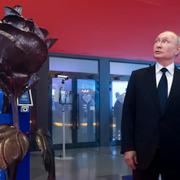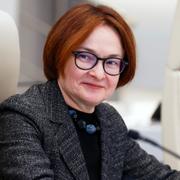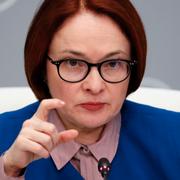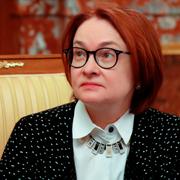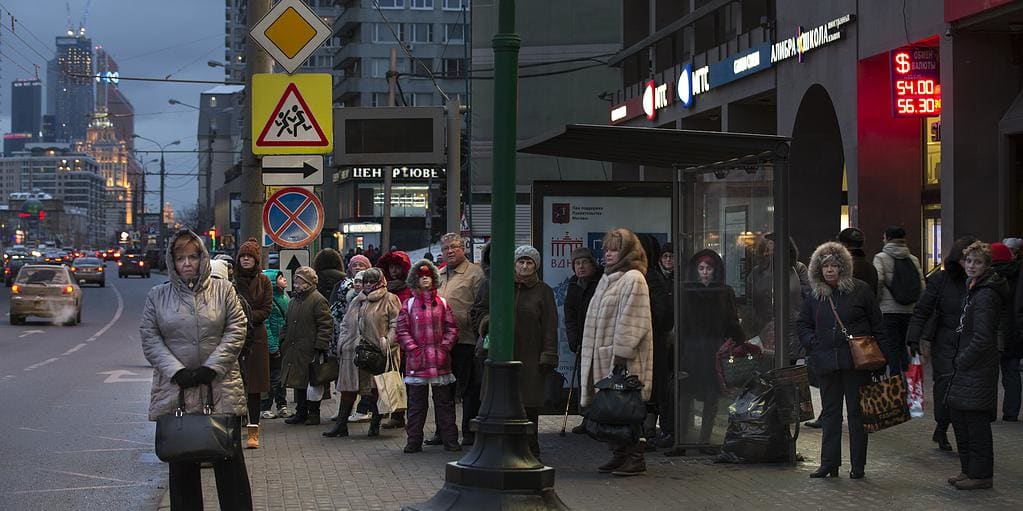
Tufft för centralbanken när medelklassen försvinner
Den krympande ryska medelklassen skapar problem för landets centralbank. Banken har varnat för att dess förmåga att styra inflationen begränsas av de växande inkomstklyftorna, skriver Bloomberg.
Enligt centralbankens tidigare rådgivare Oleg Kouzmin beror det på att ekonomin i det rådande klimatet påverkas mer av finanspolitiska åtgärder.
– Efterfrågan blir känsligare för budgetbeslut, säger han till Bloomberg.
Löner och inhemsk efterfrågan sjunker fortfarande i en takt som varit ovanligt under president Vladimir Putin. På onsdagen uppgav landets statistikbyrå att detaljhandeln i september sjönk för 21:a månaden i rad.
bakgrund
Rysk ekonomi
Wikipedia (en)
Russia has a upper-middle income mixed economy with state ownership in strategic areas of the economy. Market reforms in the 1990s privatized much of Russian industry and agriculture, with notable exceptions to this privatization occurring in the energy and defense-related sectors.
Russia's vast geography is an important determinant of its economic activity, with some sources estimating that Russia contains over 30 percent of the world's natural resources. The World Bank estimates the total value of Russia's natural resources at $75 trillion US dollars. Russia relies on energy revenues to drive most of its growth. Russia has an abundance of oil, natural gas and precious metals, which make up a major share of Russia's exports. As of 2012 the oil-and-gas sector accounted for 16% of the GDP, 52% of federal budget revenues and over 70% of total exports.
Russia has a large and sophisticated arms industry, capable of designing and manufacturing high-tech military equipment, including a fifth-generation fighter jet, nuclear powered submarines, firearms, short range/long range ballistic missiles. The value of Russian arms exports totalled $15.7 billion in 2013—second only to the US. Top military exports from Russia include combat aircraft, air defence systems, ships and submarines.
In 2015, the Russian economy was the sixth largest in the world by PPP and twelfth largest at market exchange rates. Between 2000 and 2012 Russia's energy exports fueled a rapid growth in living standards, with real disposable income rising by 160%. In dollar-denominated terms this amounted to a more than sevenfold increase in disposable incomes since 2000. In the same period, unemployment and poverty more than halved and Russians' self-assessed life satisfaction also rose significantly. This growth was a combined result of the 2000s commodities boom, high oil prices, as well as prudent economic and fiscal policies. However, these gains have been distributed unevenly, as the 110 wealthiest individuals were found in a report by Credit Suisse to own 35% of all financial assets held by Russian households. Poor governance means that Russia also has the second-largest volume of illicit money outflows, having lost over $880 billion between 2002 and 2011 in this way. Since 2008 Forbes has repeatedly named Moscow the "billionaire capital of the world".
The Russian economy risked going into recession from early 2014 - mainly as a result of the falling oil prices, the 2014 Russian military intervention in Ukraine and the subsequent capital flight. However, the 2014 GDP growth remained positive at 0.6%. In 2015, the Russian economy shrunk by 3.7% and is expected to shrink further in 2016. However, the World Bank and the IMF estimate that Russia's economy will begin to recover by 2017.
In January 2016, the US company Bloomberg rated Russia's economy as the 12th most innovative in the world, up from 14th in January 2015 and 18th in January 2014. Russia has the world's 15th highest patent application rate, the 8th highest concentration of high-tech public companies, such as internet and aerospace and the third highest graduation rate of scientists and engineers. Alexei Kudrin, the ex finance minister said that Russia needs to reduce geopolitical tensions to improve the economic conditions.
bakgrund
Ryska centralbanken
Wikipedia (en)
The Bank of Russia (Russian: Банк России) is the central bank of the Russian Federation, founded in 1860, headquartered on Neglinnaya Street in Moscow. Its functions are described in the Russian constitution (Article 75) and in the special Federal Law.
Läs också:
Omni är politiskt obundna och oberoende. Vi strävar efter att ge fler perspektiv på nyheterna. Har du frågor eller synpunkter kring vår rapportering? Kontakta redaktionen
